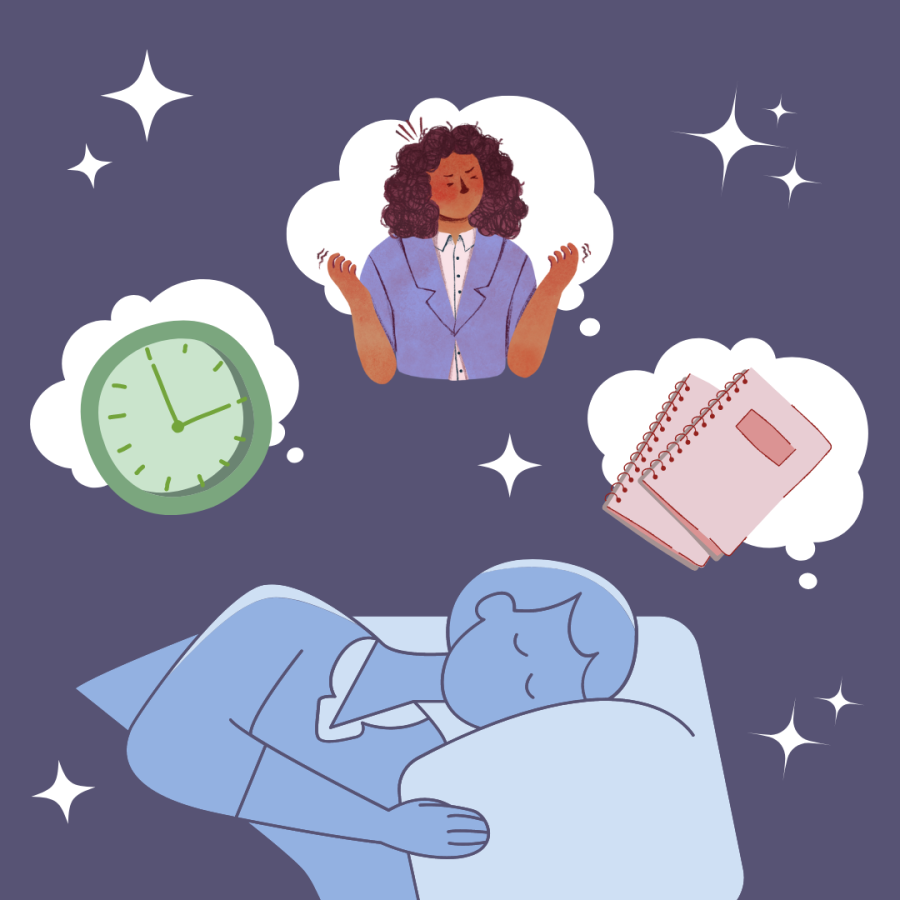Unhealthy Sleep Schedules
March 5, 2023
An average teenager gets nearly seven and a half hours of sleep per night out of the nine and a half recommended, while others get even less. Whether it’s finishing late-night assignments, going out with friends, or binge-watching a show, it can lead to consequential results.
I admit to staying up late, getting fewer than seven hours most nights. Although occasionally, desperate times call for desperate measures where you have to finish assignments or other responsibilities, but most nights with little hours of sleep can be avoidable.
When a parent or teacher tells me to get more sleep as a teenager, I find myself bored with the idea that my night would be wasted with the ‘nonsense’ of more sleep. But in reality, it’s more than just a recommendation. During your teenage years, sleep has a monumental effect on brain development. It is especially important for teenagers to gain more hours of sleep to benefit their emotional development, growth in school performance, and physical well-being.
Defined as the long-term effects of sleep loss that contribute to a wide range of health consequences, sleep deprivation is unfortunately common among teenagers. According to Health Line, 73% of high school students regularly fail to meet a healthy amount of hours of sleep, with school being the majority of reasons why.
However, it doesn’t have to stay this way. Getting into a healthy sleeping habit can be hard at first, but once you find a routine that works for you and can maintain will then improve your overall well-being. Simply reading, journaling, or listening to music before you sleep can help you relax at night, improve your sleep and get you much-needed rest.
School, work, relationships, and hobbies are important, but so are you. Take the time to rest.





